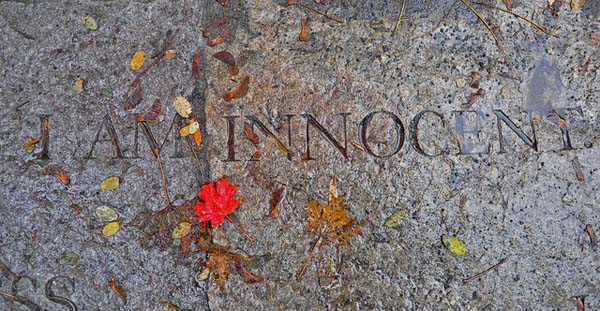
While shopping for a witch’s hat for the Jewish costume-festival of Purim, a verse from the Biblical book of Exodus popped into my head. The King James Version translates Exodus 22:17 as “Thou shalt not suffer a witch to live,” or as the Basic English Bible says, “Any woman using unnatural powers or secret arts is to be put to death.”
Three hundred years of European witch-hunts ended in 1750 after 100,000 trials and 50,000 executions. (Three-quarters of the accused were women, except in Iceland, where 90 percent of “witches” were men.) The Salem witch trials lasted just two years in the 1690s; 200 people were accused and 20 were executed.
As I left the toy store with my pointy-tipped purchase, I felt a sense of relief that the verse is no longer interpreted literally. But, as I later discovered, Exodus 22:17 is still cited as a “proof-text” in relation to the maltreatment of child “witches” in Africa, according to a recent paper by Paul Cookey, a doctoral student at the Theological College of Northern Nigeria in the city of Jos.
Accusations of witchcraft and sorcery are still leveled at thousands of people every year, mainly older women and children in Africa, Asia, and the Middle East. Last October, seven people accused of witchcraft were burned alive in the Tanzanian village of Murufiti. In 2013 in Papua New Guinea, a 20-year-old mother was accused of sorcery, tortured, and set on fire on a pile of tires in front of a crowd of hundreds.
“In too many settings, being classified as a witch is tantamount to receiving a death sentence,” according to Philip Alston, a special rapporteur on extrajudicial, summary, or arbitrary executions in a 2009 report to the U.N. Human Rights Council.
Another 2009 report, presented by Jill Schnoebelen to the U.N. high commissioner for refugees, details the scope of the problem. In Kinshasa, the capital of the Democratic Republic of Congo, it is estimated that more than 60 percent of street children have been thrown out of their homes after allegations of witchcraft. In Tanzania, government statistics show that between 1998 and 2001, some 17,220 women—many of them elderly—were abused for practicing witchcraft, and 10 percent of them were killed. Similarly, elderly, destitute women in Nepal are often targeted with accusations of sorcery.
Children with disabilities or diseases—or those simply deemed rebellious—are frequent targets of exorcism ceremonies, which may be implemented by Pentecostalist pastors, parents, or relatives. Such children may be denied food or water, beaten, or burned. Accusations of “black magic” are often linked to the rise in diseases such as HIV/AIDS, or, in the latest twist, Ebola.
Just as witchcraft allegations in Europe and North America coincided with lowered crop yields, so too do witchcraft allegations in Africa overlap with extreme weather events, according to economist Edward Miguel. As cited by Schnoebelen, he found that in western Tanzania “there are twice as many witch murders in years of extreme rainfall [resulting in drought or floods] as in other years.” Civil war and political repression, climate change and natural cataclysms such as floods and famine can all create stress that intensifies witchcraft allegations.
A community that believes itself to “be under the threat of physical or cultural extinction,” Schnoebelen writes, tends “to rely more heavily on supernatural explanations.”
Next Week: What is to be done?


